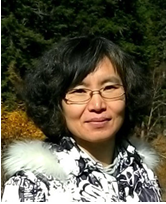| Biography | |
|---|---|
 Prof. R. X. Wang Vacuum Interconnected Nanotech Workstation, Suzhou Institute of Nano-tech and Nano-bionics, Chinese Academy of Sciences, China |
|
| Title: Deposition and characterization of transparent conductive oxide films | |
| Abstract: Transparent conductive oxides (TCO) are important electrical contact materials which have great potential applications in the fabrication of modern electronic and optoelectronic devices. For instance, by utilizing TCO to replace traditional metal electrodes in optoelectronic devices, higher electronic and optical performances may be obtained because of higher light transmittance and reduced transverse series resistance. Recently, the deposition of TCO on different substrates including GaN and the characteristics of formed TCO/GaN heterostructure have attracted a great deal of interest. In this talk, the deposition and characterization of TCO thin films, including GaZnO and ITO are presented. It is found that the optical and electrical properties of the formed heterostructures are strongly dependent on not only different types of substrates, but also the deposition conditions and parameters of GaZnO and ITO materials as well as post-deposition treatments. Our systematic studies provide solid experimental data and leads to some progress in understanding of TCO thin films and TCO/GaN heterostructures. In addition, selected device applications of the fabricated TCO/GaN heterostructures are discussed. Acknowledgments: This work is financially supported by National Natural Science Foundation of China (Grant No. 11974378). | |
| Biography: Professor Wang Rongxin earned her PhD degree in Physics Department, The University of Hong Kong in 2005. Then she worked in The Hong Kong Polytechnic University as Postdoctoral Research Fellow. Currently she holds a professorship in Suzhou Institute of Nano-Tech and Nano-Bionics, Chinese Academy of Sciences. Her current research interest includes device fabrication and characterization of wide bandgap semiconductors (nitrides and oxides). Prof. Wang’s outstanding works and important contributions include the fabrication of III-V compound solar cells with a 43.1% efficiency, the invention of TiNi-thin-film shape memory alloy microtweezers, and the development of bias-voltage dependent deep ultraviolet photodetectors based on GaOx + ZnO nanocrystal thin films etc. | |
